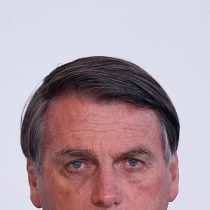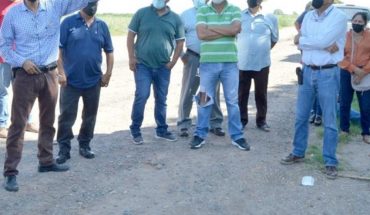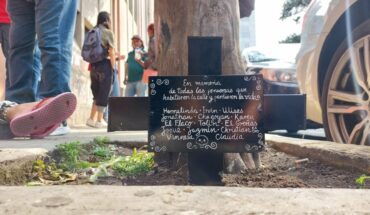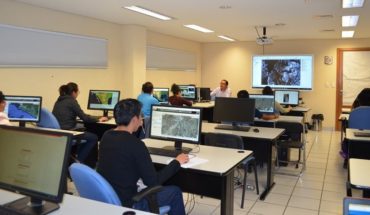
The far-right one that supports Brazil’s president, Jair Bolsonaro, suffered a heavy footing in Sunday’s municipal elections, forcing her to rethink strategies and alliances for the 2022 presidential election, which point to a strengthening of center contenders.
In the first setback at the ballot box since Bolsonaro was elected in 2018, the vast majority of mayor candidates directly or indirectly backed by the army reserve captain have crashed in the elections held in 5,569 cities across the country.
The 65-year-old head of state, seeking re-election in 2022, campaigned directly for at least 13 candidates.
Nine failed, two managed to move on to the second round scheduled for November 29 and only two were elected this Sunday in municipalities of zero national projection: Ipatinga, in the state of Minas Gerais, and Parnaíba, in Piauí.
He also supported a handful of would-be councillors, of which only a minority emerged victorious, including his son Carlos, in Rio de Janeiro, although along the way 36,000 votes were left and was no longer the most voted edil in the Fluminian capital, as in 2016.
PINCHAZO DEL BOLSONARISMO IN REGIONAL CAPITALS
In Sao Paulo, the country’s largest polling station with nearly 9 million voters, conservative Celso Russomanno, supported by Bolsonaro, came to lead opinion polls at the beginning of the campaign, but placed fourth with 10.50% of the vote.
In Belo Horizonte, the sixth most populous city in the country, the debacle was worse. Centrist Alexandre Kalil, highly critical of the representative’s denialism during the coronavirus pandemic, was re-elected on the first lap (63.3%) bruno Engler (9.95%).
Also disappointing were the results of candidates related to the far-right leader in Recife, capital of the state of Pernambuco (northeast), and Manaus, capital of Amazonas (north).
The greatest joys were Rio de Janeiro, the electoral cradle of the Bolsonaro clan, and Fortaleza.
In the first, the current mayor and evangelical bishop Marcelo Crivella managed to reach the second round, but the trend is that in the ballage Eduardo Paes, of the Democratic party (centroderecha), absorbs a greater number of votes.
In Fortaleza, Wagner Sousa Gomes, known as “Captain Wagner”, will face Laborist José Sarto.
BAGARO, UNARMED WITHOUT A POLARIZED ENVIRONMENT
The political map behind the municipalities is far from the polarization seen in the 2018 presidential, when they faced the far-right embodied in Bolsonaro and the Workers’ Party (PT) led by former President Luiz Inácio Lula da Silva, the ruler’s greatest political antagonist.
At least locally, Brazilians have opted for moderate candidacies of centroderecha and centroizquierda, a land where Bolsonaro does not move so well.
“The antipolytic wave that chose Bolsonaro in 2018 has lost strength,” he told Efe Claudio Couto, political analyst and professor at the Getulio Vargas Foundation (FGV).
The representative, according to analysts, is interested in a crisp environment, a with me or without me, with a rhetoric of the cold war times, that is, right against left and not far right versus center.
Bolsonaro has already sought to mobilize his most radical electorate in election week with controversial statements designed to warm the mood.
At an official event to promote tourism, he stated that Brazil “has to let itself be a country of fags” to face covid-19 and ruled in “war” terms against U.S. President-elect Joe Biden regarding possible sanctions for his questioned environmental policy in the Amazon.
Inflamed public opinion did not seem to serve him this time, but, just in case, Bolsonaro already gave his version of the events last midnight after learning of the failure of his candidates.
“The left suffered a historic defeat in this election, a clear sign that the conservative wave arrived in 2018 to stay,” he said on social media.
CENTRODERECHA MOBILIZES BY 2022
But that “conservative wave” is now closer to the center and is already beginning to articulate in the face of the 2022 presidential wave, to which Bolsonaro “gets weaker” behind the municipal ones, according to Couto.
The movements mainly start from two center-right formations: Democrats (DEM), led by The President of the Chamber of Deputies, Rodrigo Maia, and the the Brazilian Social Democracy (PSDB), which has among its best-known faces the governor of Sao Paulo, Joao Doria, very critical of Bolsonaro.
These talks also involve the well-known television presenter Luciano Huck and former justice minister Sergio Moro, who left the Government of Bolsonaro launching serious accusations against the representative for alleged illegal interference with the police.
Maia doesn’t hide her letters anymore. He acknowledged that he is trying to “build a project” set for 2022 and minimized the record popularity now enjoyed by the representative, of about 40%: “It is returning to its normal size and the influence is less.”
Two years after the presidential years, Bolsonaro still tries to carry out his personal political project with the creation of the Alliance for Brazil party, which does not yet achieve the signatures necessary for its registration.
In Congress, the options are few. The official base that Bolsonaro began to build with the center block is not stable and is not even reliable in approving budgets, reforms or a fiscal adjustment package.





